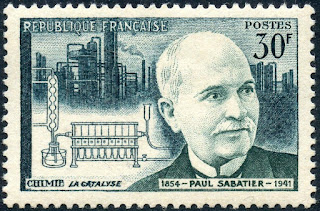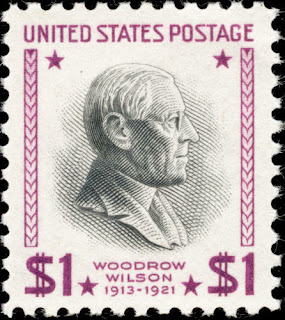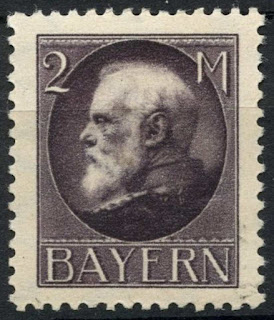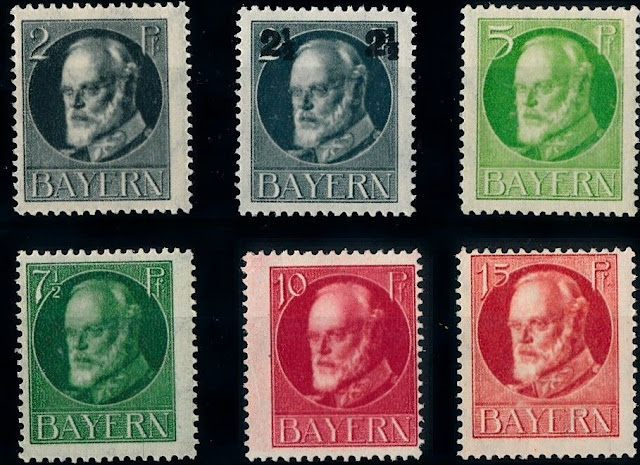1854 Born: Paul Sabatier, French chemist and academic, Nobel Prize laureate (d. 1941)
Prof Paul Sabatier (5 November 1854 – 14 August 1941) was a French chemist, born in Carcassonne. In 1912, Sabatier was awarded the Nobel Prize in Chemistry along with Victor Grignard. Sabatier was honoured for his work improving the hydrogenation of organic species in the presence of metals.
Sabatier is best known for the Sabatier process and his works such as La Catalyse en Chimie Organique (Catalysis in organic chemistry) which was published in 1913. He won the Nobel Prize in Chemistry jointly with fellow Frenchman Victor Grignard in 1912. He is also known for the Sabatier principle of catalysis
French stamp depicting Paul Sabatier
Italy had long claimed that Tripoli fell within its zone of influence and that Italy had the right to preserve order within the state. Under the pretext of protecting its own citizens living in Tripoli from the Ottoman government, it declared war against the Ottomans on 29 September 1911, and announced its intention of annexing Tripoli. On 1 October 1911, a naval battle was fought at Prevesa, Greece, and three Ottoman vessels were destroyed.
By the Treaty of Lausanne, Italian sovereignty was acknowledged by the Ottomans, although the caliph was permitted to exercise religious authority. Italy officially granted autonomy after the war, but gradually occupied the region. Originally administered as part of a single colony, Tripoli and its surrounding province were a separate colony from 26 June 1927 to 3 December 1934, when all Italian possessions in North Africa were merged into one colony. By 1938, Tripoli had 108,240 inhabitants, including 39,096 Italians
The Italians occupied Cyrenaica during the Italo-Turkish War in 1911 and declared it an Italian protectorate on 15 October 1912. Three days later, the Ottoman Empire officially ceded the province to the Kingdom of Italy. On 17 May 1919, Cyrenaica was established as an Italian colony, and, on 25 October 1920, the Italian government recognized Sheikh Sidi Idriss as the leader of the Senussi, who was granted the princely rank of Emir until 1929. In that year, Italy withdrew recognition of him and the Senussi. On 1 January 1934, Tripolitania, Cyrenaica, and Fezzan were united as the Italian colony of Libya.
The Italian fascists constructed the Marble Arch as a form of an imperial triumphal arch at the border between Cyrenaica and Tripolitani near the coast.
There was heavy fighting in Cyrenaica during World War II between the Allies and the Italian Army and the Nazi German Afrika Korps. In late 1942, the armed forces of the British Empire overran Cyrenaica and the United Kingdom administered all of Libya through 1951, when the Kingdom of Libya was established and granted independence.
Stamps 1-4 issued in both Tripoli and Cyrenaica
1912 – Woodrow Wilson is elected the 28th President of the United States, defeating incumbent William Howard Taft.
Thomas Woodrow Wilson (December 28, 1856 – February 3, 1924) was an American statesman, lawyer, and academic who served as the 28th president of the United States from 1913 to 1921. A member of the Democratic Party, Wilson served as the president of Princeton University and as the 34th governor of New Jersey before winning the 1912 presidential election. As president, he oversaw the passage of progressive legislative policies unparalleled until the New Deal in 1933. He also led the United States into World War I in 1917, establishing an activist foreign policy known as "Wilsonianism." He was the leading architect of the League of Nations.
Born in Staunton, Virginia, Wilson spent his early years in Augusta, Georgia, and Columbia, South Carolina. After earning a Ph.D. in political science from Johns Hopkins University, Wilson taught at various schools before becoming the president of Princeton. As governor of New Jersey from 1911 to 1913, Wilson broke with party bosses and won the passage of several progressive reforms. His success in New Jersey gave him a national reputation as a progressive reformer, and he won the presidential nomination at the 1912 Democratic National Convention. Wilson defeated incumbent Republican President William Howard Taft and Progressive Party nominee Theodore Roosevelt to win the 1912 presidential election, becoming the first Southerner to be elected president since the American Civil War.
During his first term, Wilson presided over the passage of his progressive New Freedom domestic agenda. His first major priority was the passage of the Revenue Act of 1913, which lowered tariffs and implemented a federal income tax. Later tax acts implemented a federal estate tax and raised the top income tax rate to 77 percent. Wilson also presided over the passage of the Federal Reserve Act, which created a central banking system in the form of the Federal Reserve System. Two major laws, the Federal Trade Commission Act and the Clayton Antitrust Act, were passed to regulate and break up large business interests known as trusts. To the disappointment of his African-American supporters, Wilson allowed some of his Cabinet members to segregate their departments. Upon the outbreak of World War I in 1914, Wilson maintained a policy of neutrality between the Allied Powers and the Central Powers. He won re-election by a narrow margin in the presidential election of 1916, defeating Republican nominee Charles Evans Hughes.
In early 1917, Wilson asked Congress for a declaration of war against Germany after Germany implemented a policy of unrestricted submarine warfare, and Congress complied. Wilson presided over war-time mobilization but devoted much of his efforts to foreign affairs, developing the Fourteen Points as a basis for post-war peace. After Germany signed an armistice in November 1918, Wilson and other Allied leaders took part in the Paris Peace Conference, where Wilson advocated for the establishment of a multilateral organization, per his "fourteenth point". The resulting League of Nations was incorporated into the Treaty of Versailles and other treaties with the defeated Central Powers, but Wilson was subsequently unable to convince the Senate to ratify that treaty or allow the United States to join the League. Wilson suffered a severe stroke in October 1919 and was incapacitated for the remainder of his presidency. He retired from public office in 1921 and died in 1924. Scholars have generally ranked Wilson as one of the better U.S. presidents, though he has received strong criticism for his actions regarding racial segregation.
US stamps depicting Woodrow Wilson
1913 – King Otto of Bavaria is deposed by his cousin, Prince Regent Ludwig, who assumes the title Ludwig III.
Ludwig III (Ludwig Luitpold Josef Maria Aloys Alfried; 7 January 1845 – 18 October 1921) was the last king of Bavaria, reigning from 1913 to 1918. He served as regent and de facto head of state from 1912 to 1913, ruling for his cousin, Otto. After the Bavarian parliament passed a law allowing him to do so, Ludwig deposed Otto and assumed the throne himself. He led Bavaria into World War I, and lost his throne along with the other rulers of the German states at the end of the war.
On 7 November 1918, Ludwig fled from the Residenz Palace in Munich with his family and took up residence in Schloss Anif, near Salzburg, for what he hoped would be a temporary stay. He was the first of the monarchs in the German Empire to be deposed. The next day, the People's State of Bavaria was proclaimed.
On 12 November 1918, a day after the Armistice, Prime Minister Dandl went to Schloss Anif to see the King. Ludwig gave Dandl the Anif declaration (Anifer Erklärung) in which he released all government officials, soldiers and civil officers from their oath of loyalty to him. He also stated that as a result of recent events, he was "no longer in a position to lead the government." The declaration was published by the newly formed republican government of Kurt Eisner when Dandl returned to Munich the next day. Ludwig's declaration was not a statement of abdication, as Dandl had demanded. However, Eisner's government interpreted it as such and added a statement that Ludwig and his family were welcome to return to Bavaria as private citizens as long as they did not act against the "people's state." This statement effectively dethroned the Wittelsbachs and ended the family's 738-year rule over Bavaria.







